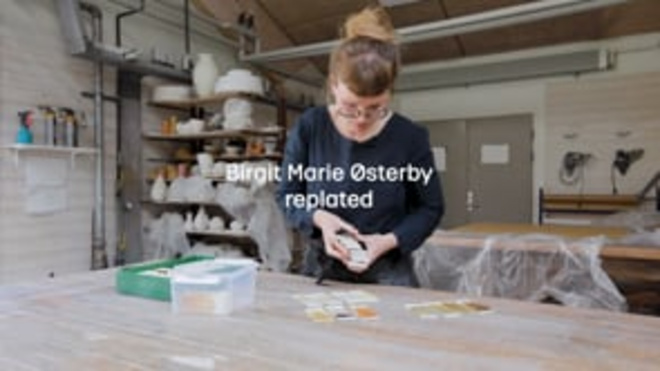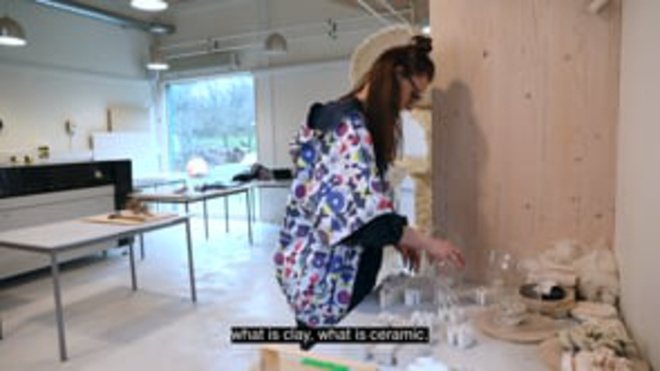About the programme
The Professional Bachelor of Crafts in Glass and Ceramics has a specific artistic and entrepreneurial profile. This allows students to explore the idea of starting their own business — or to become a key employee in a company.
Throughout the programme, students learn about the regional, national and international traditions around crafts — with a focus on social significance and contemporary development. This includes insights into new production methods, modern technologies and sustainability.
The glass and ceramics workshops are at the heart of the programme. This is where students develop their skills to work with form and expression, function and object by using varied materials. At the workshops, students have many opportunities to explore and experiment with the materials’ diverse expressions.
All students will do an internship in their fourth and seventh semesters. Internships strengthen students’ competencies and professionalism and help them develop a professional network.
We offer both glass and ceramics in two fields of study. The overall structure, frame and content are the same across the programme — but when it comes to practice and culture, we educate two different types of craft makers.
Teaching happens in multiple ways. Material workshop courses are based on technical skills and experimental idea development. Students also meet teachers in hands-on sessions or when teachers advise their projects. There are also lectures, teamwork, discussions and field trips. During the programme, students will have the opportunity to plan and carry out their own projects — from inception and sketches to finished pieces in glass and ceramics.



